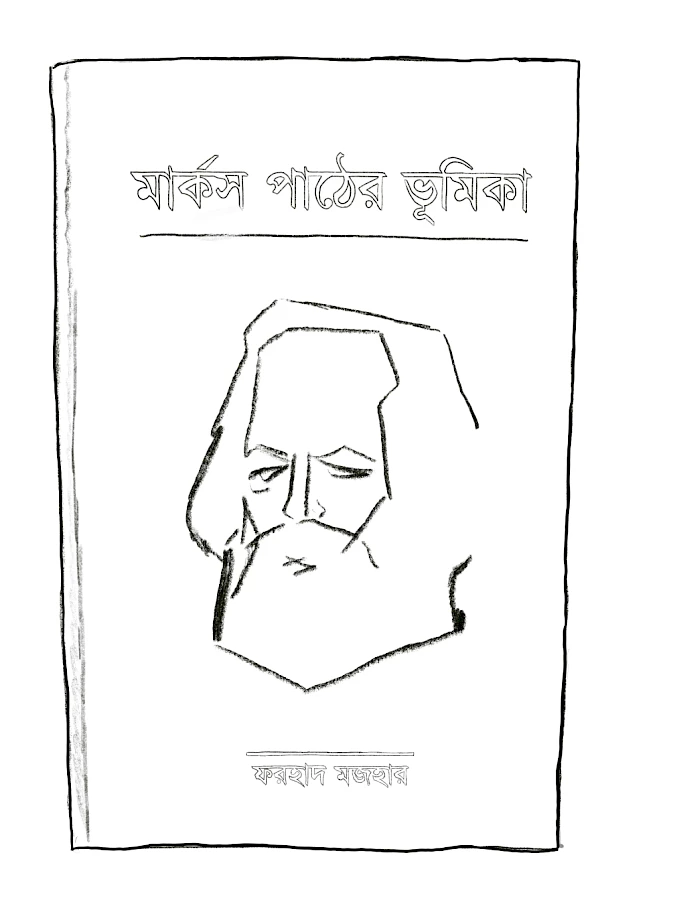
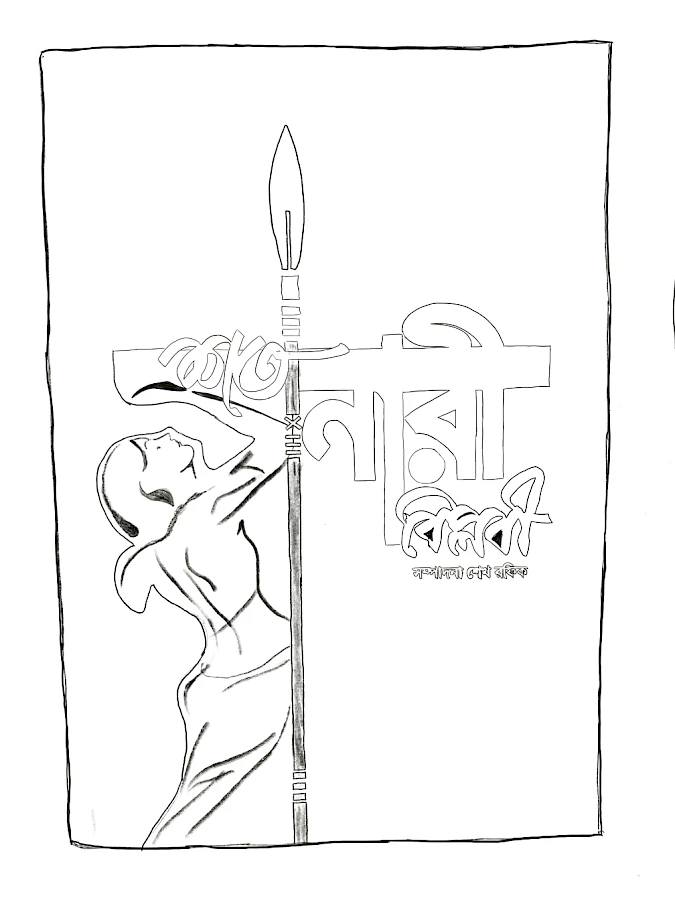
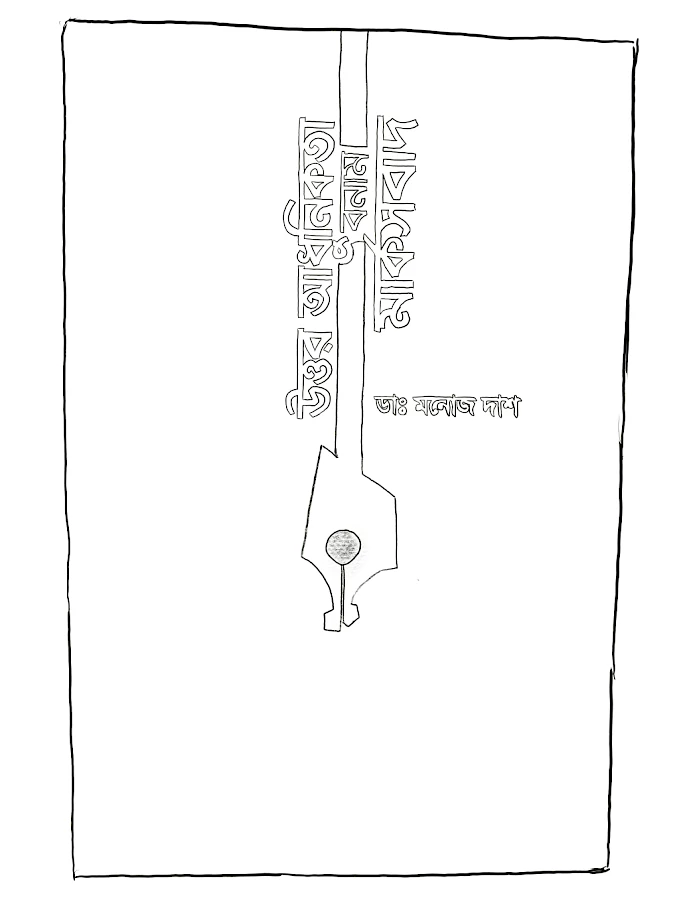
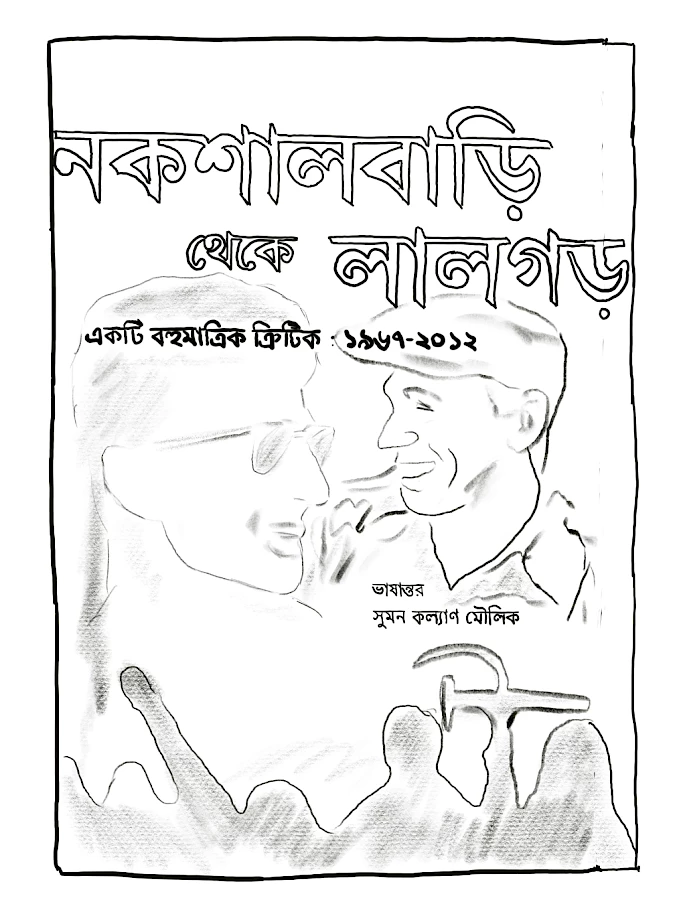
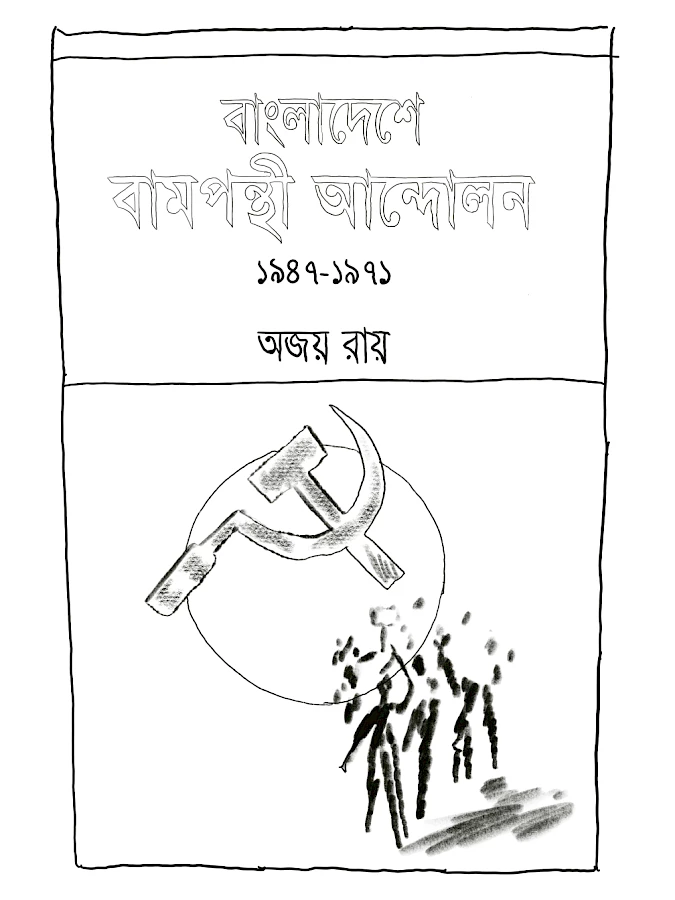
Naeem Mohaiemen studied at two schools run by imported leaders – New Tripoli in Libya with a Maltese headmaster, and St Joseph in Bangladesh with Jesuit priests. Colonel Gaddafi explained Jamahiriya as a "state of the masses." Perhaps the thirty medical families imported to run Okba Ibn Nafaa Air Force Hospital were part of those masses as well. The Gurji school was an experiment in socialist cohabitation; Egyptian, Jordanian, Bangladeshi, and Polish students together. Our Arabic teacher was quick with his slaps, he thought of us as children of a lesser tongue. It was some kind of early lesson in realpolitik.
CREDITS:
Marx Pather Bhumika 1
Drawings by Naeem Mohaiemen, 2021.
Based on book designs by Shibu Kumar Shil, Mehedi Banu Mita, Dilip Ghosh, and Munir.
DRAWINGS IN ORDER:
Farhad Mazhar, Marx Pather Bhumika [Introduction to Reading Marx], Agamee Prakashani, 2011. Original book cover design by Shibu Kumar Shil.
Sheikh Rafiq (ed.), Shata Nari Biplobi [Hundred Women Revolutionaries], Biplabider Kotha Prokashon, 2014. Original book cover design by Mehedi Banu Mita.
Manoj Das, Uttar Adhunikata Bonam Marxbad [Postmodernism versus Marxism], Jatiya Sahitya Prakashani, 2012. Original book cover design by Mehedi Banu Mita.
Suman Kalyan Bhaumik (trans.), Naxalbari Theke Lalgar: Ekti Bohumatrik Critique 1967–2012 [From Naxalbari to Lalgarh: A Multidimensional Critique 1967–2012], Setu Prakashani, 2013. Original book cover design by Dilip Ghosh.
Ajoy Roy, Bangladeshe Bamponthi Andolon: 1947–1971 [Leftist Movements in Bangladesh: 1947–1971], Sahittika Prakashani, 2003. Original book cover design by Munir.
The views and opinions published here mirror the principles of academic freedom and do not necessarily reflect the views or positions of the L'Internationale confederation and its members.